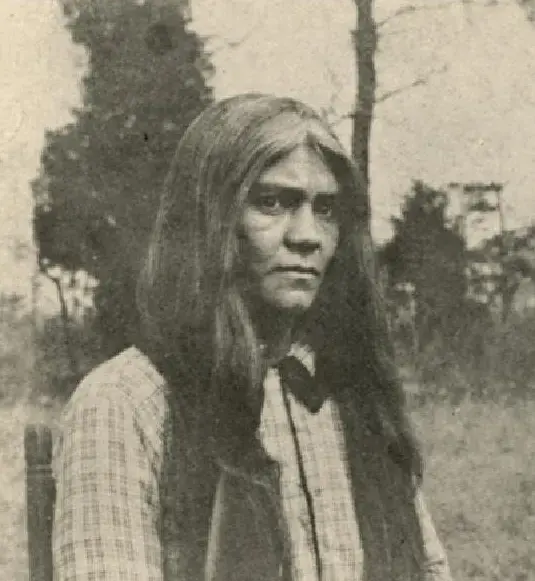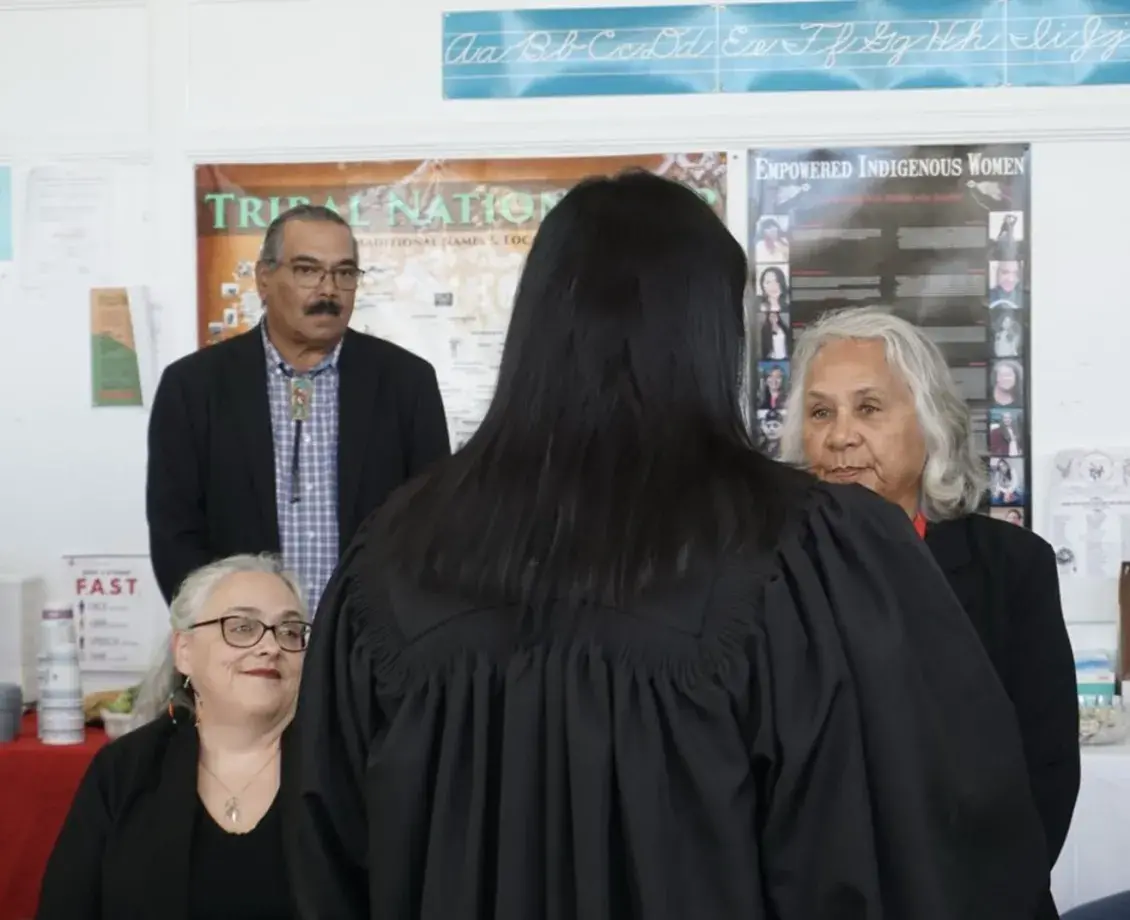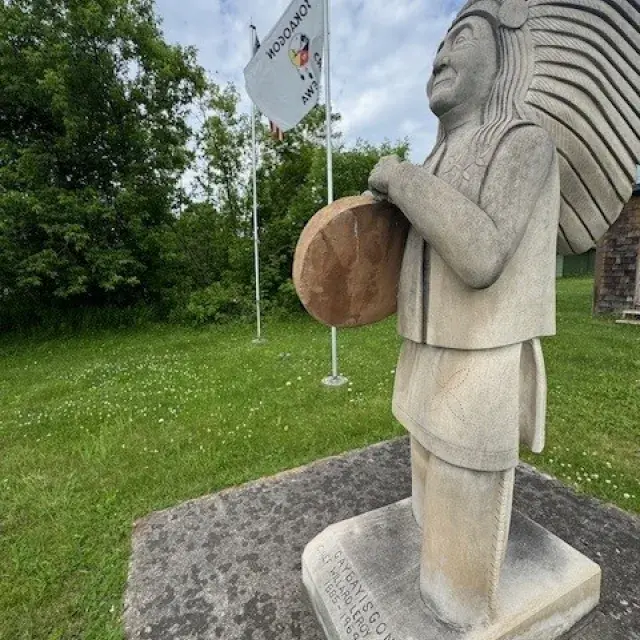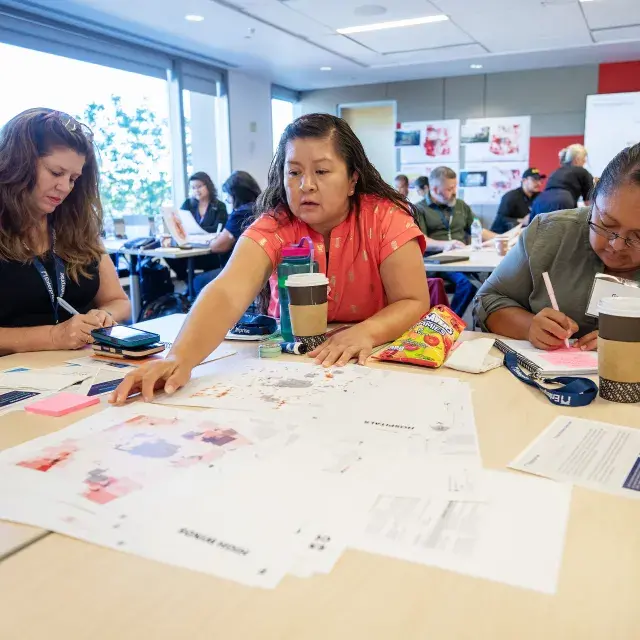For Women’s History Month, Enterprise’s Tribal Nations team interviewed Lou Wratchford, Assistant Chief of the Upper Mattaponi Tribe, on how she values housing, approaches leadership as a woman, and pulls from her past to serve her Tribal community in King William, Virginia.
It took Lou Wratchford many years to think of herself as a leader. “I’ve always thought of myself as an Upper Mattaponi person, and always an advocate for my Tribe,” said Lou, who was elected by her Tribe in October 2023. Assistant Chief Lou Wratchford is now the third woman executive leader in the Upper Mattaponi’s modern history. (To learn more about Native women leaders before colonization, read about Cockacoeske, Chief of the Pamunkey.)
Lou, who was elected after raising a family and a 35-year career in the health insurance industry, says she is still learning. “There is a vision for our Tribe that we will have Native housing built on Native land by Native people," she said.
"As a leader, I’m learning so much. I know that we need to learn the best practices to put our vision in place. But I have faith it will happen… maybe not in my lifetime, but it will happen.”
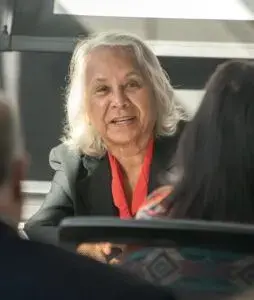
The ancestors of the Upper Mattaponi Tribe were part of the first-contact tribes at Jamestown in 1609 and the Upper Mattaponi have called the Tidewater Region of Virginia home since time immemorial. Now the Tribe holds an enrollment of close to 650 Tribal citizens, with nearly a third of the population living in the Philadelphia area.
As recent as two generations ago, after Virginia’s Racial Integrity Acts passed in 1924, the resulting segregation and discrimination forced Upper Mattaponi citizens to seek education and jobs away from their traditional homeland. In the same year the federal government gave Native Americans the right to vote with the passage of the Indian Citizenship Act of 1924, the state government took away those rights by attempting to erase Native identity on paper. Lou’s family stayed in Adamstown, the cultural center of the Upper Mattaponi community, despite this administrative genocide against Virgina Natives that was orchestrated by an appointed government official and white supremacist named Walter Ashby Plecker.
From Advocate to Leader
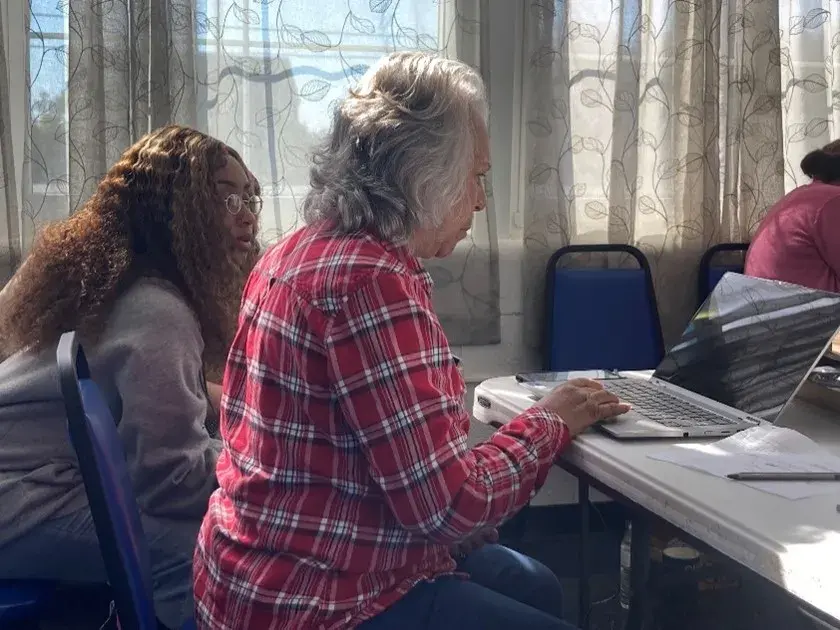
Growing up, Lou was more likely to be reading books than playing with her nine siblings. She attended Sharon Indian School in Virginia through the 11th grade before graduating from high school from Oak Hill Academy. “As I grew up, my family was very poor. We lived on what we could grow, and collected stores for the winter months,” she said. “We didn’t have the amenities of houses today, but my parents valued education. We got sent all over the country to get that education, but we learned that having a good home to come back to is one of the blessings of life,” she added. Lou’s older brother, Wes, attended Bacone College in Oklahoma – like many Virginia Native youth – for his high school diploma and a junior college degree.
After graduation, Lou went to work at the Baptist Book Store. Several years later she got married, had a son (who now serves as a Tribal councilman), and had a successful career in health insurance while becoming progressively more involved with the leadership of the Upper Mattaponi community. Her rise from advocate to leader was gradual, beginning in the 1970s when the Upper Mattaponi formed their first Articles of Incorporation under Upper Mattaponi Indian Tribe, Inc. Lou supported the Upper Mattaponi in their state recognition in 1984, and again in receiving federal recognition, a right providing legal acknowledgement for the Upper Mattaponi granted in January of 2018.
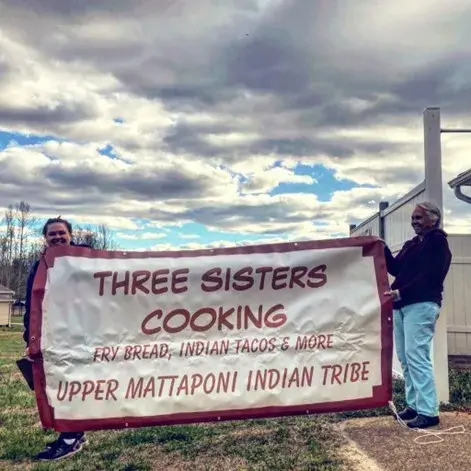
Making Elder Housing a Priority
With her 80th birthday approaching in September, Lou said she has learned some important lessons over the years about how to take care of her community. She identified elder housing and its accompanying services as an important priority for community development. In fact, she said she sees elder care, housing, and services as a core component to rebuilding Adamstown. She believes that Elders have learned the art of perseverance and wants to ensure that Upper Mattaponi citizens of the future are able to build upon those important values.
“What we experience when we’re young impacts us as adults. We look back and think about the major impact our past has on our plans now… We are resilient and we are determined. Just as my generation stands on the shoulders of those before us, so will those who come behind us stand on our shoulders.”
In bringing more elder housing to Adamstown, Lou is working to provide the culture-keepers of the Upper Mattaponi protection from the growing challenges related to affordability, diminished housing quality, and the ability to independently age-in-place. She is focused on fostering collaboration between the Upper Mattaponi’s Housing Department and Health Systems to provide in-home assistance in units built, owned, and operated by the Tribe on sovereign land.
The intersection of race, gender, class, and the political distinction experienced by Tribal nations creates layers of barriers and challenges to mainstream success within dominant American society. Lou Wratchford considers herself successful partially in thanks to these barriers and the resilience they taught, not despite them. This Women’s History Month, we honor all the women who have fought for their communities, for their careers and families, and for their homes. We are grateful for women like Lou who are dedicated to rebuilding, even if they’ll never know the shade of the trees they’re planting.
